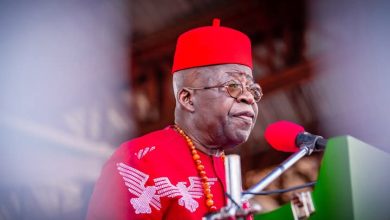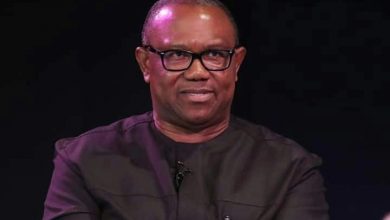
By Emeka Monye
As the United Nations General Assembly (UNGA) convenes at its headquarters in New York, world leaders gather to address pressing global issues, including climate change, conflict in the Middle East, hunger, the Palestinian crisis, and the implications of artificial intelligence. These topics dominate the discourse, setting the stage for discussions that shape the future of international relations. However, amidst the high-level talks and diplomatic maneuvering, a glaring paradox emerges: Africa, a continent of immense cultural, economic, and geopolitical significance, remains curiously peripheral to the global conversation.
The UNGA is a premier platform for world leaders to voice their perspectives and shape global policies. Yet, when African leaders take the podium, the conference hall often appears half-empty, a stark contrast to the packed audiences that gather when their Western or Asian counterparts speak. This disparity is more than just a visual observation; it reflects a deeper issue—the persistent marginalization of Africa in global affairs.
The UNGA prides itself on being a forum where all member states have an equal voice. In theory, every nation, regardless of size or economic power, has the opportunity to contribute to global decision-making. However, reality tells a different story. The most influential voices at the UNGA often belong to powerful nations like the United States, China, Russia, France, Japan, and Germany. These countries not only set the agenda but also dictate the pace and direction of the discussions. Their interests, priorities, and perspectives dominate the conversation, while the concerns of smaller or less economically powerful nations, particularly those in Africa, are frequently sidelined.
This dynamic raises a critical question: Does Africa really matter in world affairs? Despite its vast natural resources, growing economies, and significant cultural influence, Africa’s role in shaping global policies remains limited. African leaders may deliver impassioned speeches at the UNGA, but their words often fall on deaf ears. The decisions made by global powers frequently disregard Africa’s interests, whether in matters of trade, security, or development.
Several factors contribute to Africa’s marginalization in global affairs. One major challenge is the continent’s fragmented political landscape. Unlike the European Union, which speaks with a unified voice on many global issues, Africa’s 54 countries often have divergent interests and priorities. This lack of unity weakens the continent’s collective bargaining power on the world stage.
Another challenge is economic dependency. Many African countries rely heavily on foreign aid, loans, and investment from Western nations and international financial institutions like the World Bank and the International Monetary Fund (IMF). This dependency limits their ability to assert their interests independently and reduces their leverage in global negotiations.
Additionally, Africa’s potential is often overshadowed by narratives of poverty, conflict, and underdevelopment. While these issues are undeniably significant challenges, they do not define the entirety of Africa’s story. The continent is home to vibrant economies, innovative entrepreneurs, and a youthful population that could drive global change. Yet, these positive narratives rarely capture the attention of the international community in the same way that crises do.
Despite these challenges, there are opportunities for Africa to assert its influence on the global stage. One potential pathway is through regional integration and cooperation. The African Continental Free Trade Area (AfCFTA), for example, aims to create a single, unified market for Africa, boosting intra-continental trade and economic growth. By working together, African nations can strengthen their economic power and increase their bargaining position in global affairs.
Another avenue for change is through strategic partnerships. Africa can build alliances with emerging powers in the Global South, such as Brazil, India, and Southeast Asian nations, to amplify its voice on issues like climate justice, debt relief, and sustainable development. These partnerships can help Africa play a more proactive role in shaping global policies that affect its interests.
For Africa to matter more in world affairs, both African leaders and the international community must rethink their approaches. African leaders need to prioritize unity, economic self-reliance, and strategic engagement with global partners. At the same time, the international community must recognize Africa’s potential and value its contributions to solving global challenges.
The UNGA provides a platform for this reimagining. By giving Africa a seat at the table—and not just a token seat but a meaningful one—world leaders can tap into the continent’s vast resources and perspectives. Africa’s youthful population, entrepreneurial spirit, and cultural dynamism are assets that can drive global innovation and progress.
In conclusion, while Africa may currently occupy a peripheral role in global affairs, there is immense potential for change. By working together, building strategic partnerships, and asserting its interests more forcefully, Africa can become a more influential player on the world stage. The question is not whether Africa matters; it is how Africa can matter more. The answer lies in the hands of African leaders and its global partners.
Emeka Monye Is A Journalist




